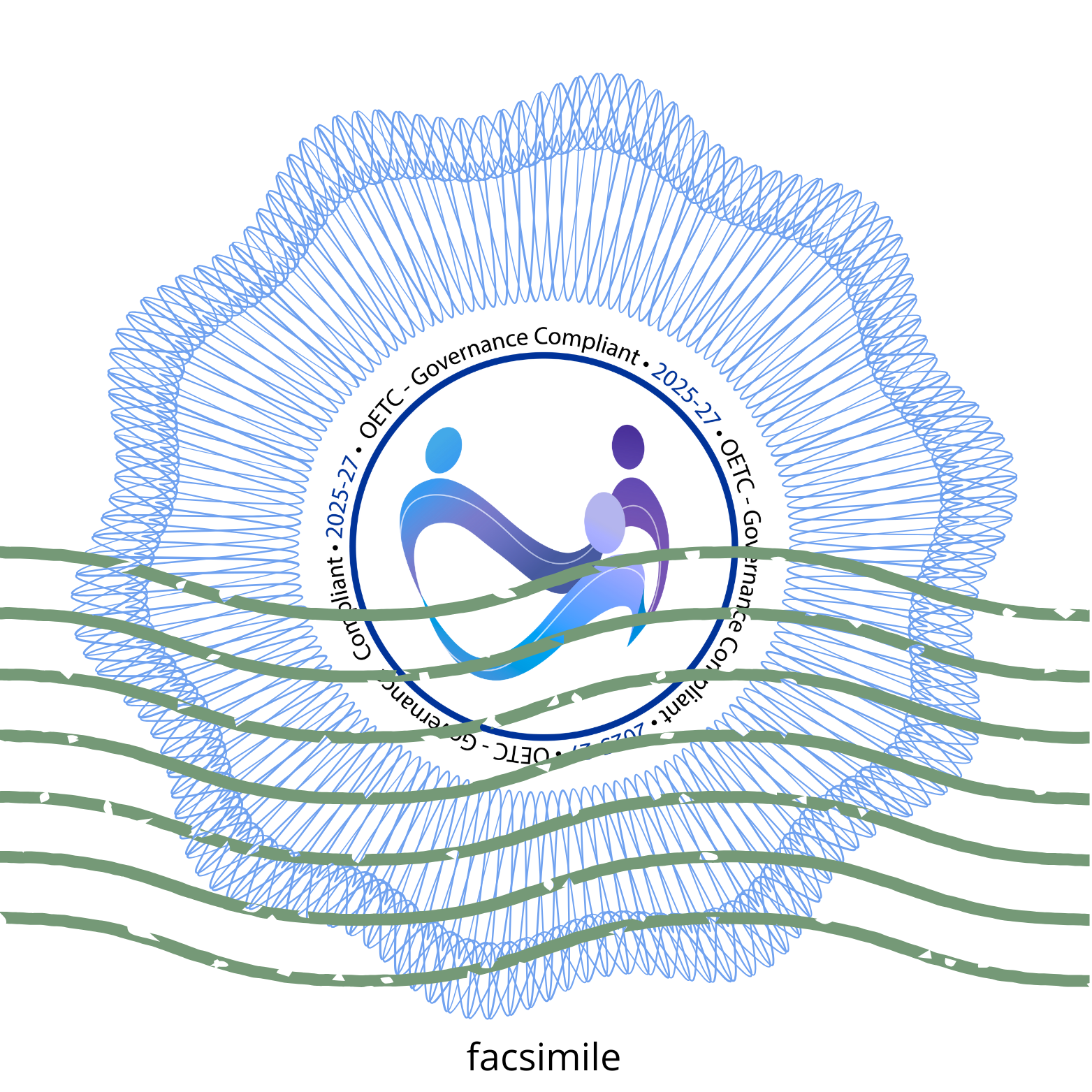The European Register of Cooperative Governance (REGC)
What is the REGC and Why Does It Exist?
The European Register of Cooperative Governance (REGC) is a pioneering instrument, designed and managed by the OETC, to promote transparency, accountability, and good governance within the European cooperative movement. It is not a "blacklist," but a factual and dynamic database with a dual objective:
Protecting Members Provide a deterrent mechanism against mismanagement and abuse by administrative bodies.
Valuing Virtuous Cooperatives Offering cooperatives that operate to the highest standards of transparency a tool to gain recognition for their commitment.
The REGC acts as a "thermometer" of the democratic and managerial health of cooperatives, providing valuable information to members, stakeholders and, above all, national and European supervisory authorities.
The REGC: The Power of Transparency
The European Register of Cooperative Governance (REGC) is much more than just an archive: it is the strategic heart of the OETC's action.
It was designed to have a tangible impact on the balance of power, by introducing a principle of direct accountability for directors and creating a powerful deterrent to mismanagement. At the same time, the REGC recognizes the value of cooperatives that operate with integrity, by offering them a recognized label of excellence. For members, it's a guarantee that every report contributes to a fairer system; for institutions, it's an unprecedented source of objective data. The REGC is the tool that transforms transparency from an ideal into a real lever for change.
How Registration in the REGC Works
1. Opening a Report
Registration in the REGC is never automatic. It originates exclusively from a report sent by a member to the OETC. Our legal team and analysts carry out a preliminary check to ensure that the report is well-founded, not vexatious, and based on objective elements. It is only after this verification, if the request is deemed admissible, that the OETC proceeds with the registration.
2. Who is Registered and the Legal Soundness of the Register
When a report is accepted, two entities are registered in the REGC:
The cooperative as a legal entity.
Individually, the members of its Board of Directors (or other management body) in office at the time of the reported events.
This individual registration is based on a sound European legal principle: Legitimate Interest (Art. 6, GDPR). The OETC has a legitimate interest, enshrined in its statutes, to monitor and promote transparency. Board members, by virtue of their fiduciary role and direct legal responsibilities to members, occupy a position of public relevance that justifies such oversight, provided it is balanced with their fundamental rights. The REGC is structured to fully respect this balance, processing data in a way that is proportionate, relevant, and limited to the purposes of protecting good governance.
3. Notification to the Cooperative and Member Protection
Within 15 days of registration, the OETC sends a formal communication (registered letter with acknowledgment of receipt) to the cooperative's Board of Directors. The letter:
Informs that the cooperative and its directors have been registered in the REGC.
Explains what the REGC is and what its purposes are.
Specifies that the registration occurred "following a report from one or more members, deemed admissible by the Observatory after preliminary checks".
Invites the Board of Directors to engage in constructive dialogue and to take possible corrective action (compliance).
To protect the reporting member(s), their identity is never disclosed to the cooperative.
4. Compliance Does Not Cancel the Report
It is important to emphasize that the cooperative's eventual compliance following our notification is a positive step that is noted in the Register, but does not result in the immediate deletion of the report. The registration remains as a historical record of the critical issue that occurred.
Security, Confidentiality, and Data Protection
The management of the REGC is based on the highest standards of security and GDPR compliance. The trust of our members and the fairness of the process are our top priorities.
Pseudonymization To protect the identity of individuals, data in the REGC is pseudonymized. This means that information that could directly identify an individual (such as the name of the reporting member) is replaced by an alphanumeric code and stored in a separate database with enhanced security measures. This allows us to analyze cases and share aggregated data with authorities without unnecessarily exposing personal data.
Secure Infrastructure The REGC's entire architecture is built on the principles of "privacy by design" and "privacy by default". We use advanced encryption for both data at rest (on our servers) and data in transit (during communications) to prevent unauthorized access.
Limited Purposes The data collected is used exclusively for the stated purposes: governance monitoring, advocacy, and support for supervisory authorities. It is never sold or shared with commercial entities.
To encourage good practices, the OETC has created the "OETC - Governance Compliant" label, a recognition of excellence that cooperatives can apply for and use.
1. How to Obtain the Label
A cooperative can obtain the label if it meets the following criteria:
Have no active reports in the REGC for at least 36 months.
Voluntarily adopt advanced transparency policies (e.g., full disclosure of directors' remuneration, regulations on access to documents that are more favorable than the law).
Successfully pass a documentary audit conducted by the OETC.
2. Label Suspension and Revocation
The opening of a new report in the REGC leads to the immediate suspension of the label. The cooperative will not be able to apply for it again for 3 years, or until a new Board of Directors has implemented the necessary statutory changes to remedy the critical issue.
"OETC - Governance Compliant" Label
Term, Deletion, and the Right to be Forgotten
1. Data Retention Period
Each report registered in the REGC remains active for a maximum period of 10 years, an appropriate timeframe to monitor governance over the long term, similar to the practice in credit information systems.
2. The "Discontinuity" Procedure for New Boards of Directors
A new Board of Directors, which demonstrates a clear break with previous management, may request the early deletion of reports. The request may be accepted by the OETC on four conditions:
The new Board of Directors must prove it has taken concrete action to remedy the causes that generated the initial report.
It must demonstrate that it has adopted new internal policies (e.g. statutory) guaranteeing greater transparency and better protection for members.
It must obtain, through a specific resolution at the General Meeting, the approval of an absolute majority of the cooperative's members for both the request to delete the report and the launch of a new transparency initiative in collaboration with the OETC.
The previous Board of Directors must have been completely replaced.
Even if the request is accepted, the OETC reserves the right to retain the data for an additional 3 years in an internal archive for monitoring purposes only.
Right of Access for Cooperatives
Every cooperative has the right to know whether it is present in REGC. By sending a formal request to the following e-mail address coop@oetc-rights.eu you can receive a report containing details of any reports (nature, date, outcome), but never, under any circumstances, information that could lead to the identity of the reporting member(s).


